









1学期の終業式を終えた夕方。
幼稚園では、年長さんだけの特別な行事「夕涼み会」を開催しました。午前中一度帰宅した子どもたちが、夕方に再登園し集まってきました。
子どもたちの顔は、💓ワクワク感でいっぱい。
.
.
.
夕暮れの園庭では、友だちと手を取り合ってフォークダンスを楽しみ、その後はお弁当を囲んでわいわいと過ごしました。
.
子どもたちみんなが一番楽しみにしていたのは、なんといっても
「スタンプラリー」です。
最初のコーナーは縁側での★スーパーボールすくい★
金魚すくいのように“ほい”を使って挑戦しましたが、水の中であっという間に破れてしまう子もいれば、平均で5〜6個ほど取る中、なんと15個もすくった子も!歓声が響き渡りました。
*
・
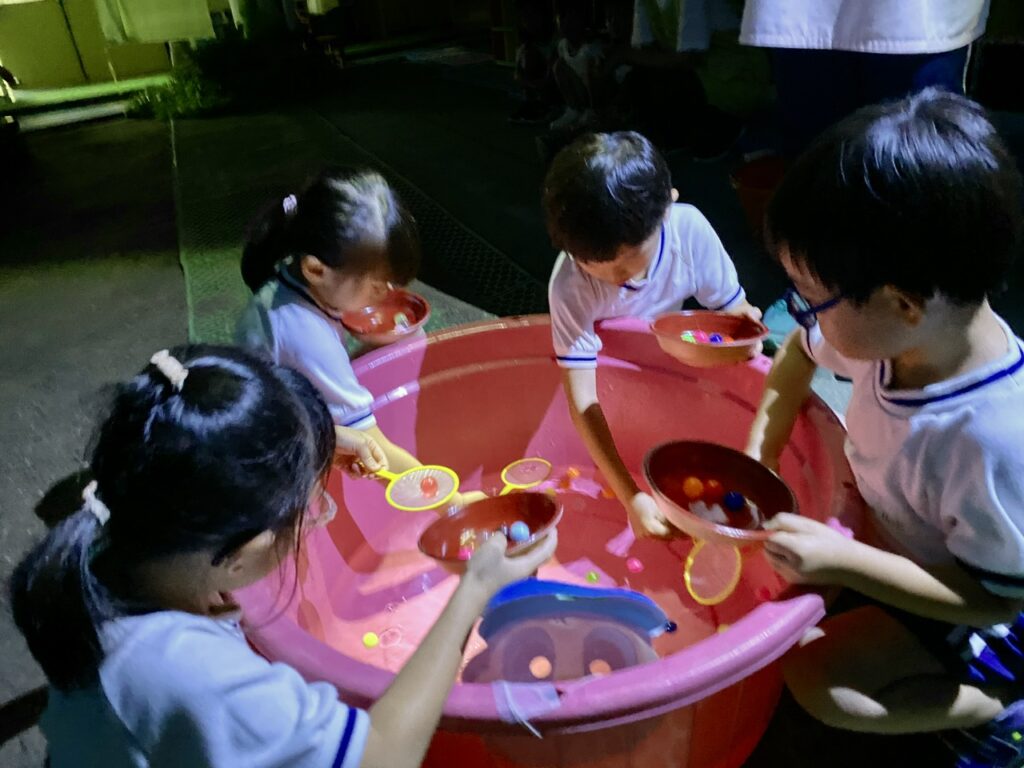
*
*
続いて、室内でのゲームコーナー
.
.
紙で作った魚を磁石の釣り竿で釣る「魚つり」、狙いを定める「的当て」、そして大盛り上がりの「ボーリング」など、それぞれの遊びに夢中になりました。
*
*
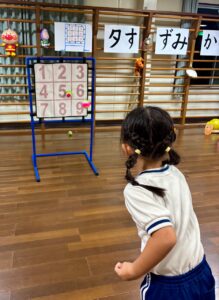
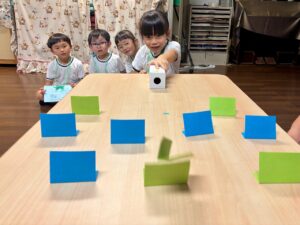
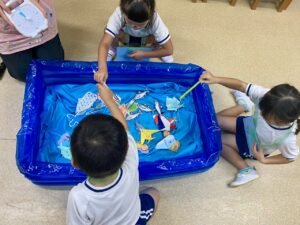
*
:
.
.
午後8時を過ぎ、園の外はすっかり真っ暗に。
迎えに来たおうちの方へ「こんなことがあったよ!」と目を輝かせて話す子どもたちの姿に、私たちも嬉しい気持ちになりました。
.
…
🌙夜の幼稚園🌙で過ごすこの「夕涼み会」は、🧒年長さんだけが体験できる特別な行事です。友だちや先生と一緒に過ごした夏のひとときは、きっと心に残る大切な思い出になったことでしょう。
*
*
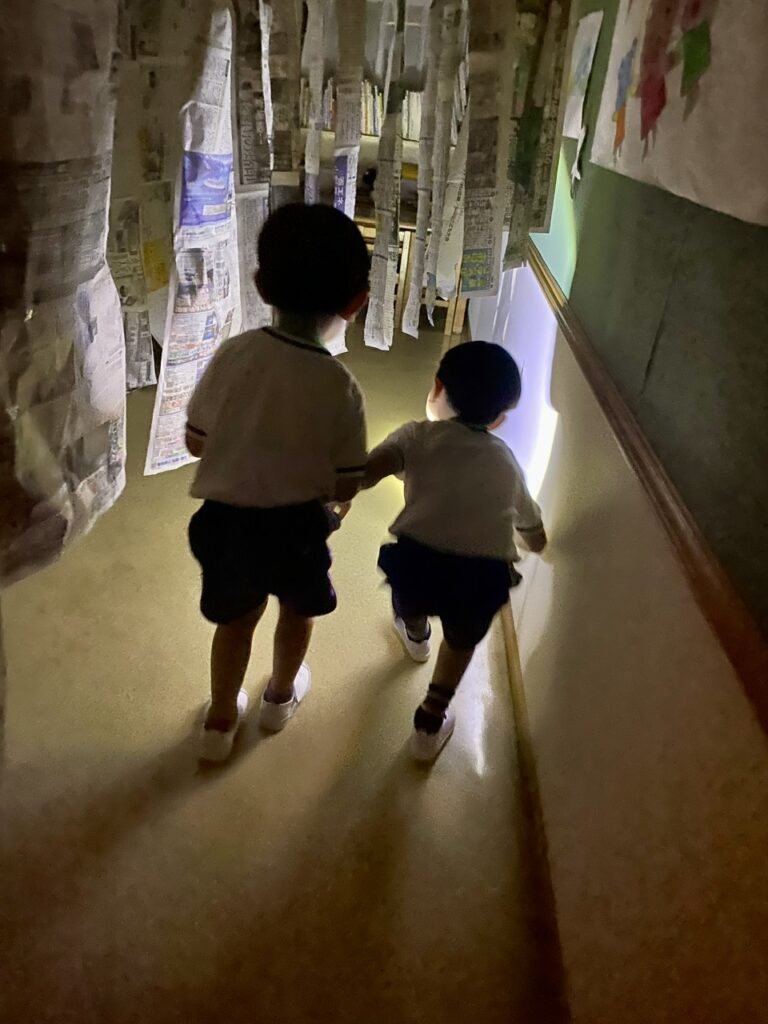
.
.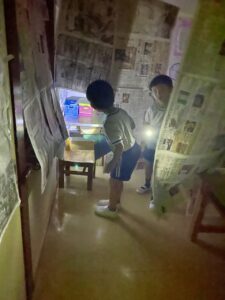
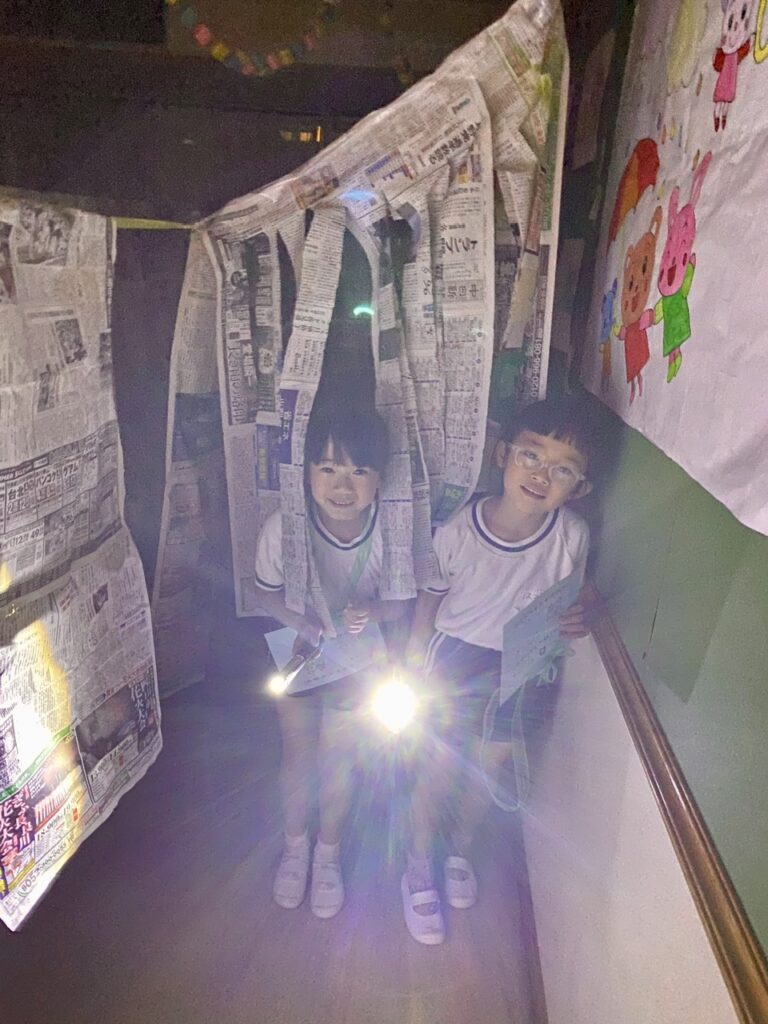
.
.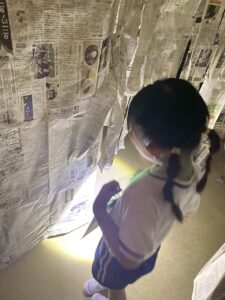
.
.
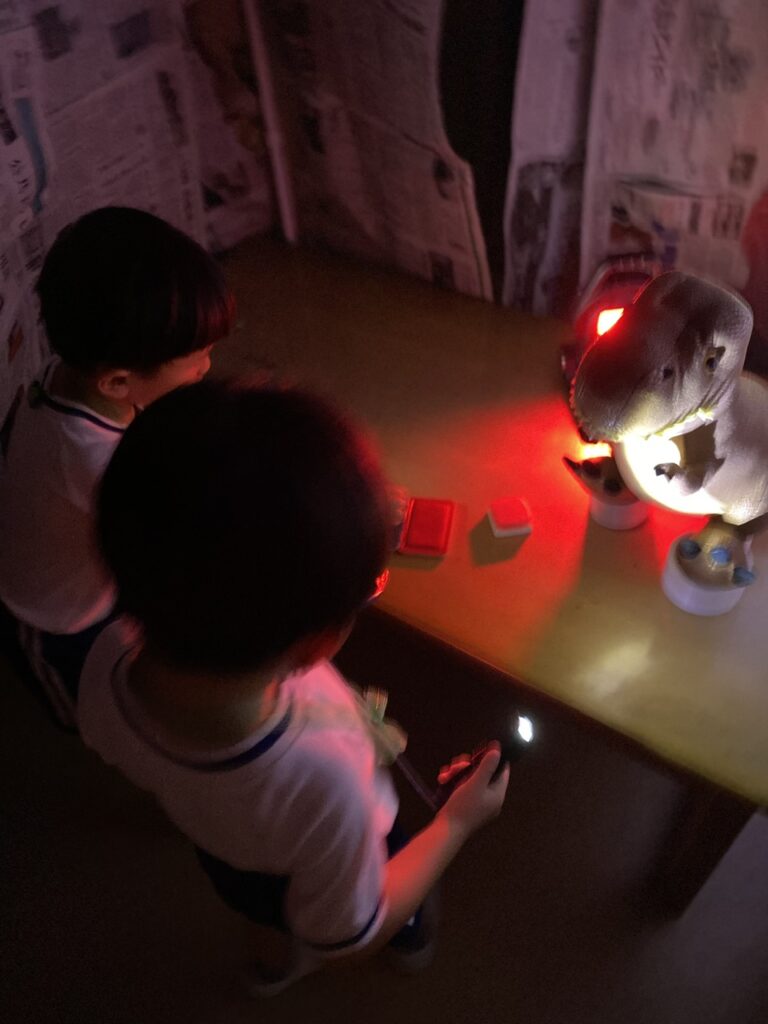
.
.
.
.
非日常の体験を通して、自信や仲間とのつながりを実感できる時間となりました。
こうした体験が、✨子どもたちに「自分はできる」という気持ちを育み✨
小学校へ向けての大きな力となっていくことでしょう。
.
.
.
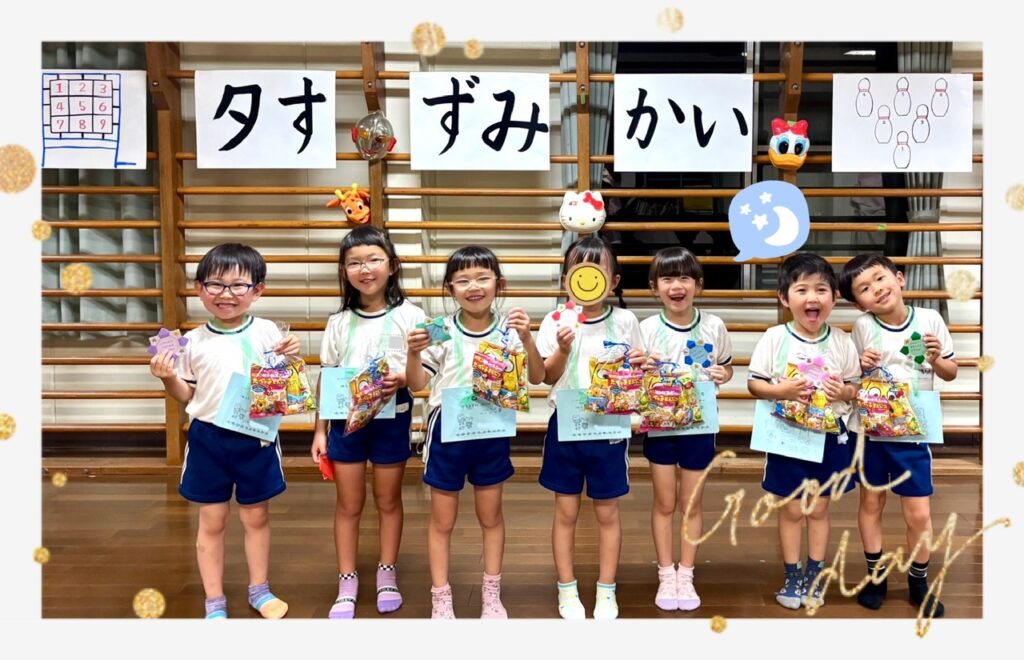
今日は、1学期の終業式を行いました。
4月、進級の喜びを胸に登園した子どもたち。
新しい環境の中で、学齢に合った活動や生活のリズムに少しずつ慣れながら過ごしてきた3か月間でした。
泣いてしまった朝もあれば、できるようになったことを嬉しそうに報告してくれる日もありました。
そんな日々を重ねるうちに、子どもたちは少しずつ自信をつけ、
表情にも頼もしさが見えるようになりましたね。
今日の終業式では、園長先生やいろいろな先生方からのお話を聞いたり、1学期でお引っ越しをするお友だちとのお別れ会をしたりしました。
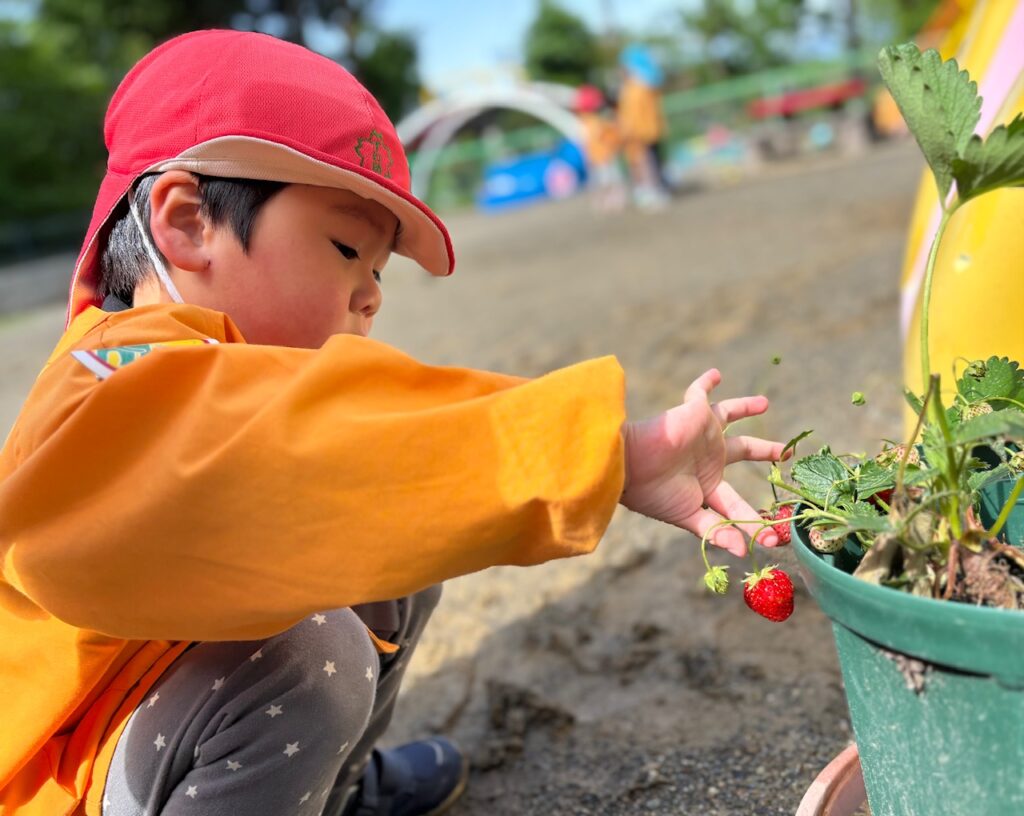
*
*
*
土に触れ、
育ちを観察し
収穫をしましたね
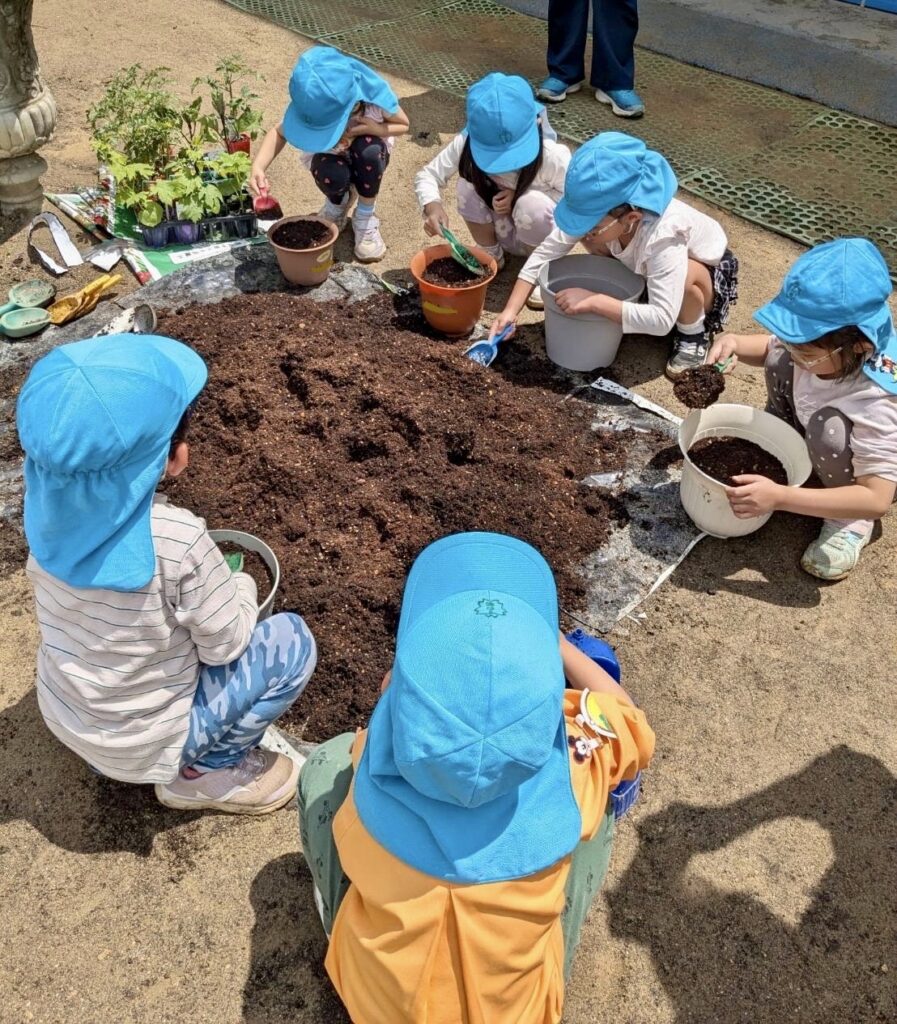
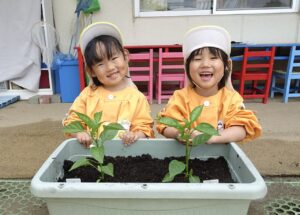
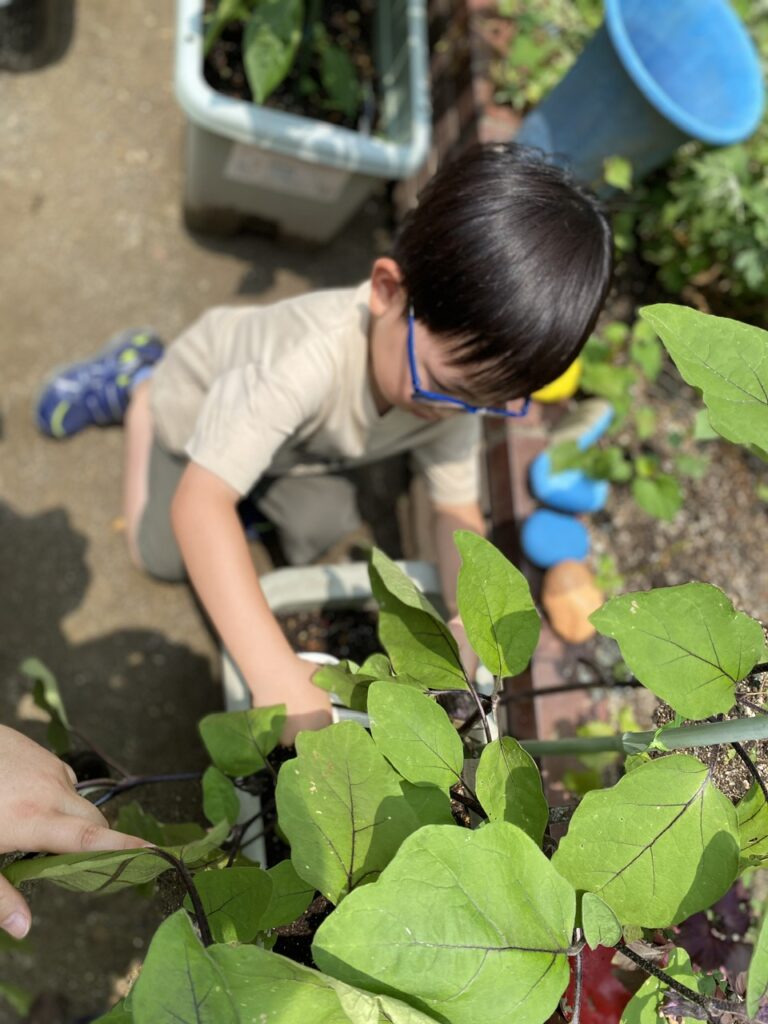
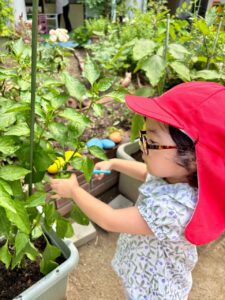
虫を探し回ったりもしましたね
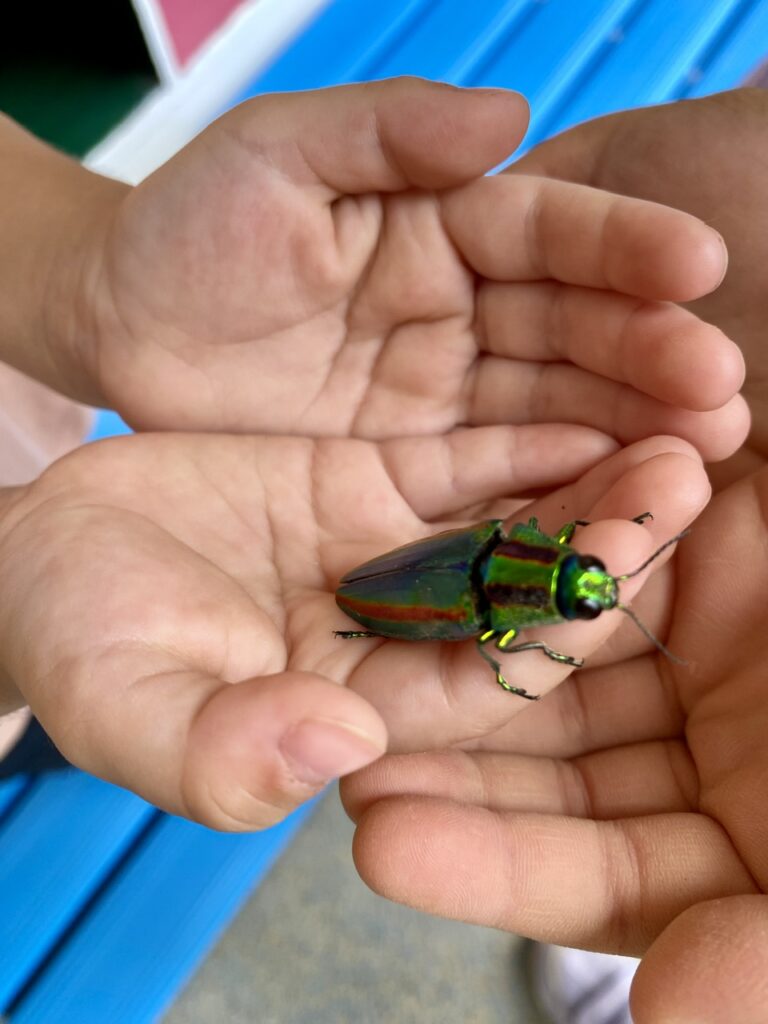
楽しい思い出がいっぱい
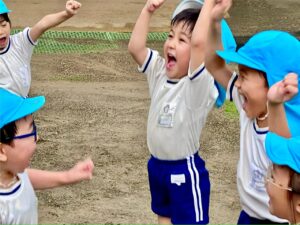
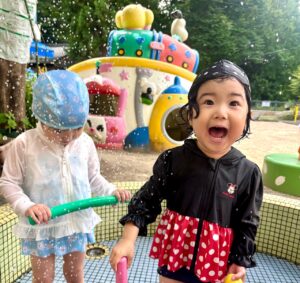
* = *= *= *= * = *= *= *=
そして
明日からは、いよいよ約1か月の夏休みです☀️
「夏休み○○するんだ~」と楽しみにしていることを話している子どもたち。
おうちの方と一緒に過ごす時間や、いつもとは違う体験の中で、子どもたちはまた大きく成長してくれることでしょう。
家庭で過ごす子もいれば、園では、夏休み期間にも共働きのご家庭も安心して子どもを園に預けることができる「預かり保育」も設定しており、預り保育を利用して、毎日幼稚園に通う子もいます。
今年の夏はこれまでにないほどの厳しい暑さが予想されています。
それぞれの夏休みを、熱中症に気をつけながら、水分補給や休息を大切にして、元気に過ごせますように。
2学期には、ひとまわり大きくなった子どもたちと再会できることを楽しみにしています。
保護者の皆さま、1学期間のご理解とご協力、本当にありがとうございました。どうぞ楽しい夏休みをお過ごしください🌻

多くの子どもたちが、すでに登園していた午前中、
岐阜市に大雨土砂災害警報が発令されました。
園では子どもたちの安全を第一に、保護者の皆様にメールを配信し、
「緊急時における園児引き渡し」を実施しました。
保護者の方々もご自身の安全を確認された上で、お子さまを迎えに来てくださいました。ご協力に感謝申し上げます。
*
*
*
幼稚園では、その時々の状況に応じて緊急事態に対応しなければならない場面があります。
また子どもの安全確保や情報発信など、保育者は手分けしながら、迅速に判断し行動することが求められます。
*
*
*
本園では、毎年一度「園児引き渡し訓練」を定時で実施しており、今年もすでに訓練を行っていたことから、
今回の緊急時にも保育者・保護者ともに、スムーズに対応することができました。
保護者の皆さまには、お迎えの車が速やかに移動できるよう、一方通行のお迎えルートを守っていただき、保育者が車の誘導に手惑うことなく園児を安全に引き渡すことができました。
日頃の備えの大切さを改めて実感するとともに、今後も子どもたちの安全を第一に取り組んでまいります。
保護者の皆様には、ご協力いただき誠にありがとうございました。